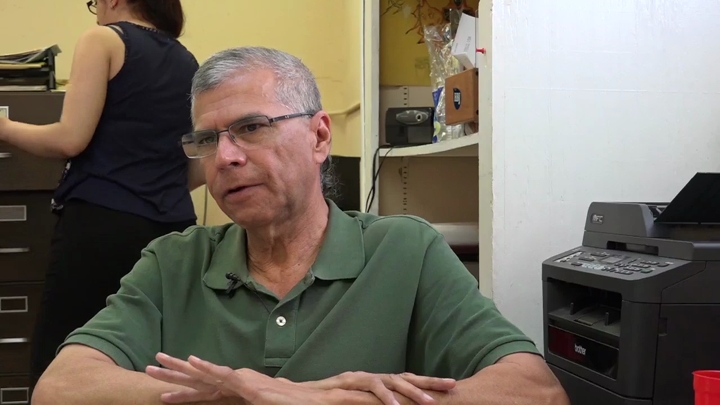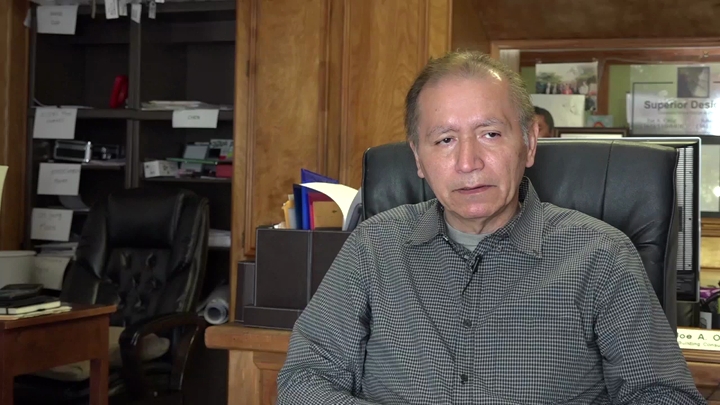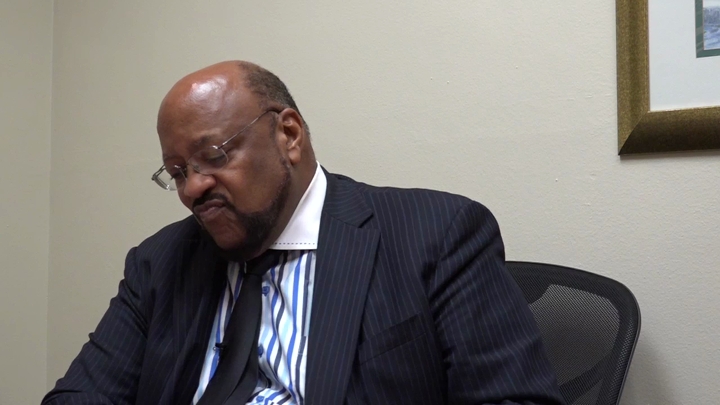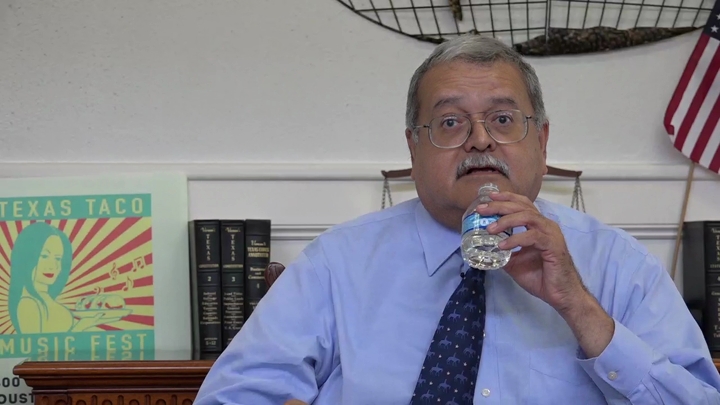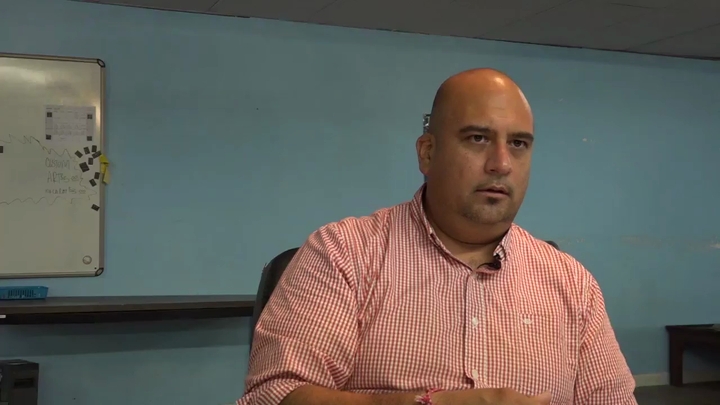Jimenez / More Student Involvement and Activism
sign up or sign in to add/edit transcript
Interviewer: What were the reactions of the faculty and the administration about having a strong contingency of students caring about communities of color? Maria Jiménez: I only had one history professor, Dr. Egan, and he told me very clearly “We hate you. Do not walk through these halls. We hate you.” Then, on the issue of the scholarships, part of what we did was to go to a very powerful senator, Senator Brooks, and let him know how this had been mis appropriated because it was part of the state budget. He got on the side- he was a very progressive gut. I do not know how even got elected, he was from Pasadena. He also weighed in on it, we got other people to weigh in on it, we got press on it. I remember we went to the meeting with the vice-president, Dr. Fields of academic affairs, after all that he looked at me and said “What do you want? I am afraid of you.” So basically we were being effective in what ever we were doing. I think that experienced- I learned we had to use all of it- press, political structure, grassroots organizing, and a combination of all of that. So what do we want- we want you to use the funds the way they should and get it to the minority and not graduate students. Interviewer: I want to ask you about your involvement in La Raza Unida, but before I do who were the member of U of H MAYO, some of the names? Maria Jiménez: Daniel Bustamante, Tacho Mendiola, Lorenzo Cano, Elliot Navarro, Ed Castillo, Ray Rodriguez, Ernesto Ibarra , Cynthia Perez, There was a little group- Theresa Gutierrez- There was a little group from San Antonio, women, that were part of it. Josephina Rendon. There were, it was a big group. It was very isolated. There were 29,000 students at U of H and only 400 Chicanos , it was not much else we could do other than get together. Eventually, we wanted a more social organization so different organizations began to form. The Chicano Law Student Association, the different organizations. By the time I left it was not just MAYO- we had formed an umbrella group of different types of Latino primarily. Interviewer: Before we move to your involvement in La Raza Unida I want to as you about Papel Chicano and how did you get to write the essay you wrote? Maria Jiménez: Well, I remember Pedro Vasquez he was the main editors of Papel Chicano. It was the only newspaper that said Papel Chicano, but you also had El Sol but that was more the Mexican-American established elite. So, Papel Chicano became the movement newspaper. He asked me to write an article and so I did. And that is what I wrote about. He published it, but I do this he got a lot of flack on it as well. Interviewer: What were some of the issues discussed in Papel Chicano? Maria Jiménez: There were all sorts of articles dealing with the Chicano movement of the period. Talked about the Barrio MAYO situation- it was the voice of the Chicano movement. The written voice of the movement in Houston. Every issue that Chicanos were tackling could be found in that newspaper. It can now be found in the archive at the Houston Library. Interviewer: You mention you addressed women’s issues. Do you remember in the article you wrote what particular issues you were raising? Maria Jiménez: Well, I was raising the issue of equality of women. I was talking about Mexican culture that needed to change so that women achieve full equality. Challenging some of those issues I was also challenging the dominant view of women that was mostly reflected in dominant culture, which was mostly reflected in tv shows. I also challenged the corporate role- the corporate role in selling certain products and defining what women were- it was a kind of combination of looking at the aspects of culture that kept us from going forward and the dominant role that kept us from going forward and also the corporate interest in the process for sustaining inequality.
| Interview | Interview with Maria Jimenez |
| Subjects | Family › Cultural Heritage Gender Roles |
| Work › Gendered Work | |
| Education › Higher Education | |
| Education › Education and Gender | |
| Education › Teachers and Administrators | |
| Education › Student Government | |
| Electoral Politics › Politicians | |
| People | |
| Student Activism › Student Organizations | |
| Chicano Power | |
| Chicano Power › Mexican American Youth Organization (MAYO) | |
| Media › Student Newspapers | |
| Tags | sign up or sign in to add/edit tags |
| Interview date | 2016-06-13 |
| Interview source | CRBB Summer 2016 |
| Interviewees | Jimenez, Maria |
| Interviewers | Enriquez, Sandra |
| Rodriguez, Samantha | |
| Locations | Houston, TX |
| Duration | 00:06:02 |
| Citation | "More Student Involvement and Activism," from Maria Jimenez oral history interview with Sandra Enriquez and Samantha Rodriguez, June 13, 2016, Houston, Civil Rights in Black and Brown Interview Database, https://crbb.tcu.edu/clips/4609/more-student-involvement-and-activism, accessed February 26, 2026 |


